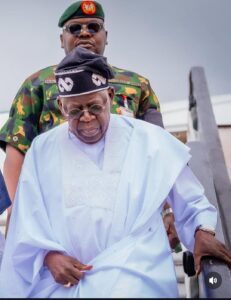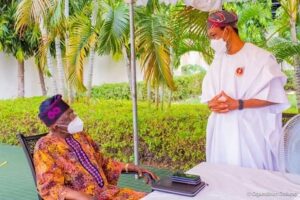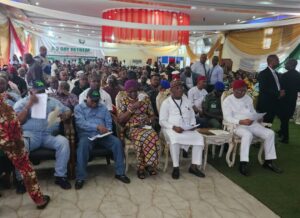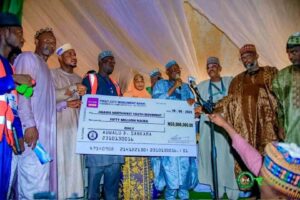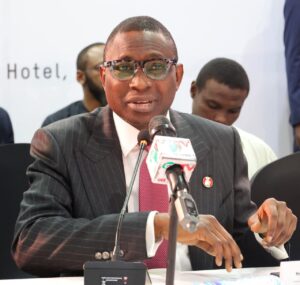PLAYING THE NIGERIAN POLITICAL GAME FOR WIN-WIN, PART 1,By Tunji Suleiman
1. I believe in one strong equitable, progressive, united, indissoluble and inviolate Nigeria.
2. I also believe in the right to self-determination.
3. I am dogmatic in my belief in 1 above.
4. I reserve the right to change my mind and grant others theirs on the same score.
Now, inherently contradictory in co-relation to each other, especially 1 to 2 and 3 to 4 above, as they may seem, I am not in the least bit apologetic about any or all.
In recent times, I have reposted some opinion pieces on the agitations for restructuring and/or separation and the state of the nation as my spirit directed. I shared posts by Nigerians home and abroad. I don’t want to heat up the polity. I however wish to engage, inform and learn. I had hoped that we may all be enriched by the perspectives of others. I got feedback. Some commentators sought to correct and/or shed light. Some simply canvassed their views. Others had only insults and rants to add. I broke my record of hate messages from persons unknown who nevertheless felt sufficiently aggrieved to invade my social media privacy. It was quite telling. Apparently, not many distinguish reposts from originals. Also, few know or care that retweets are not necessarily verbatim endorsements. And some just don’t care for the freedom of opinion.
I acknowledge the right of everybody agitating everywhere to so do. I agree with and support agitations to restructure the polity. I disagree to the extent that any agitation is violent or unlawful. I oppose those calling for dismemberment of Nigeria peacefully or otherwise. I am aware of some of the arguments of the proponents of secession, separation and/or whatever else they call it, but do not agree with or support them. In this class is the one who suggested that Nigerians should petition the UN for a forced “immediate reconstruction or dissolution of Nigeria”. And I disdain the enemies of the country’s progress who commit crimes against it. I don’t wish well for all those that bring the country to disrepute wherever they strut or skulk.
Nigeria is the story of contention for political and economic power in a multi-ethnic, multi-religious agglomeration of nationalities. The economic aspect of the struggle is mute because it is subsumed in the political. What has gone down is that one ethnic group, being fortunate or unfortunate (there’s argument on both sides) to have been vested with power at independence in 1960, held on to it to the exclusion of others who have been relegated to second or subsequent fiddle position for too long. They have managed to do this by mastering the power game.
Politics is a serious matter. So much so that some see it as do or die, and play it likewise. World political history is replete with tales of glory and of woe, attained through heroism and/or treachery, or through collaboration, conspiracy, deception and seduction, and by brinksmanship and chicanery. One beholds grand exploits attained in nobility and plots of revenge, executed with unfathomable cruelty and sadism. There is more ugliness than beauty, more bad than good for a lone price sought by many. There’s so much misery and death wrought by violence and brutality in a long tapestry of rapine and debauchery with gory details of war and conquest, and of pogrom, massacre, siege and plunder in a zero sum game where the winner takes all. This is perhaps why it is said to be dirty.
But it lends itself to the analogy of competitive sport. The winners have won consistently because they have mastered the art of using their competitive edge so well that they win over and over again. The losers have lost consistently because they have failed to master the game or to play it to win time and time again.
Now some from a section that lost out recently say they want to boycott or cancel the game. To me this is resigning to failure. Now there’s nothing wrong with failing or admitting it. But there’s everything wrong with giving up mid-way. Indeed the winner is not always him that has never lost. Neither is he always the one with the unfair advantage, for political and sports history periodically throws up underdogs who upstage the favorites of bookmakers. The winner is most often him who thinks he can. The one that gets up every time he’s knocked down, persists and positions himself to snatch victory from the jaws of defeat by delivering the knockout punch. The winner wins by overcoming failure against all odds, fair and/or foul. That’s the way to claim the championship, partake of the victory parade and savor the sweetness of glory.
He that will cry foul at every turn and threaten to boycott and/or seeks cancellation of the game midway, because he has not won or thinks he cannot win is the spoilsport; unless of course his antics form part of a deliberate strategy to reset and reposition for winning. Then it is part of the game.
That’s how one can now view the recent agitation to secede or to break up the country on the cry of underdevelopment and marginalization from the East.
“It is all politics”, said one of my friends from Eastern Nigeria who had been one the most vociferous in my circle in his arguments for secession yesterday. That was the first time he ever admitted so much. Previously, he had insisted secession is the only pathway to survival for his people. But yesterday I asked him. “Now that youths across the Niger have asked you to go, you finally have the means to actualize your dream. You must be happy now and preparing to exit. Much as I will hate to see you go, consistent with your long advocacy, as a loving family friend, the least I can do is to help you pack, so that you can depart in an orderly manner. How can we help?” He had no answer and didn’t seem ready.
When he started changing his mouth, about some lengthy procedure necessary for referendum and what not, I interrupted. “Someone wondered today what the ‘Bia’ means in ‘WaZoBia’ and suggested that it be replaced with ‘Lare’, which means come in his Bini language. Today alone, I have learned many words for come in Nigerian languages. WaZoLare, WazoLu, WaZoVare, etc. #WaZoX is trending. Many have put up their versions of come in place of “Bia”. What do you make of that?” After a pause, unusual for my friend who doesn’t go home for answers, he could only mutter something in dialect that sounded like “Odikpaserious”.
Truly, the matter ties wrapper, wears blouse and dorns headtie. Apparently the agitation, argument and counter argument to him and others in Lagos, Abuja and elsewhere outside the zone of separatist agitation is politics Nigeriana in operation, not ideology. I was somewhat relieved that he may be open to options different from his earlier grandstanding. I learnt yesterday that the case of my friend, educated, enlightened and resourceful, may not be really intractable in the search for one Nigeria that works for all. His wife constantly oscillates between “We are Biafrans!” and “We are all Nigerians o!” depending on whether she’s siding her man when I take him on in debate, or in friendly conversation with my wife.
To folks like him, it seems to boil down to throwing in all you have for political mileage or to make your points in private discussions. To his wife, it’s about hedging your bets. All is fair, they say, in love and war. And since war or the threat of it in aid of secession is politics by other means, one may be tempted to call it political business as usual. The average African in politics sees it as a business venture. And my friend nurses ambition for public office. He might just be investing his voice where his heart is.
This approach to politics may appear to pose no serious danger especially to those who rationalize that the agitator-in-chief himself is in it, like other players, for his own pocket, albeit with a potent, emotive argument. This is where, in my opinion, the line should be drawn.
The separatist agitation is multi-part. Through my interactions, I have identified some groups. The underemployed, unemployed and unemployable semi-literate youth, artisans and traders in the South East and outside it, for whom the message holds the most attraction and who seem poised to make cannon fodders of themselves is one. The vibrant, fortunate emigres in the diaspora who are willing to contribute brainwork, legwork, money, and time for protests in international capitals and for petitions to multinational organizations is another. These ones see Nigeria as a synonym for their issues real or imagined. They believe all problems will disappear with separation. They truly believe in ‘the struggle’ and will sacrifice their all for it. There are those who are undecided, neither here nor there, but watching to see where the pendulum will swing to pitch their tents. Then there are the opportunists simply waiting in the wings to cash in on the struggle if and when successful.
To be sure, there are Easterners that are patriotic to Nigeria and against separation. Some speak out and some don’t. They may not be counted for the agitation. Unfortunately, the separatist agitator-in-chief and his followers foul the air for them everywhere. The rest of us, either those agitating for restructuring ex-secession or those satisfied with the status quo view them with suspicion. The result is an atmosphere pregnant with uncertainty and portentous of strife. Never in the history of the country, save for the immediate pre-Civil War period has there been so much divisiveness. We are on the tipping point of a precipice, literally.
If truly it is all politics, then there must be ways to play the game for win-win. In the next part of this article, I hope to explore some ways and means by which the worst divisive elements of our politics may be mitigated and the game made more participatory and beneficial. Till then, long live the Federal Republic of Nigeria.
Suleiman is a Lagos based entrepreneur, I.T consultant and a Director on the Board of Security Monitor

